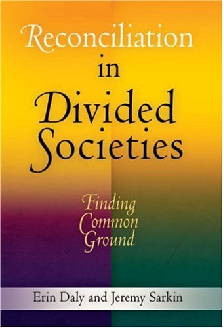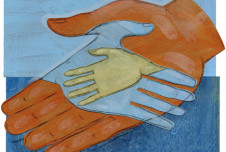
Recent history has brought an abundance of intriguing, confusing, and exciting political transitions. Since the end of apartheid in South Africa and the demise of one-party rule in Eastern Europe, we have seen the end of decades-long conflicts in Timor Leste, Ireland, Rwanda, and Peru, to name just a few.
But after independence (or unification, or democracy…) is declared, much remains to be done. It is always necessary to confront the past in order to embrace the future, and this is especially true in societies with pasts of conflict or abuse. Reconciliation in Divided Societies provides a comprehensive framework for this process, explaining not only how it can work, but also why it must.
The concept of reconciliation is one that most people readily support, but few could easily define. Erin Daly, a law professor at Widener University in Delaware, and Jeremy Sarkin, a professor and former judge in Cape Town, South Africa, unpack this elusive idea and explore its practical applications, from the personal level to the national and international stages. With attention to both the political and psychological challenges faced by a divided society, they discuss the ideas and methods behind reconciliation, as well as its compatibility with social values like truth, forgiveness, and justice. Reconciliation is not dwelling on the past, they argue, but a positive way of reframing and reaffirming a society’s goals for the future.
Reconciliation in Divided Societies is an inspirational and indispensable examination of both the reconciliation process and its essential function in today’s world.



Comments